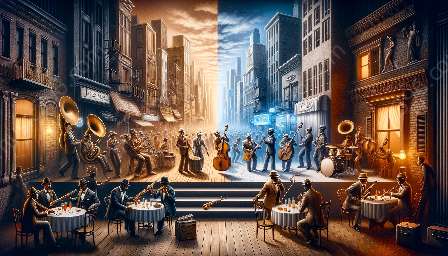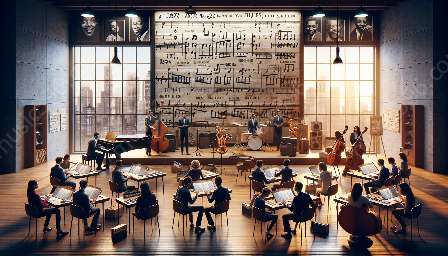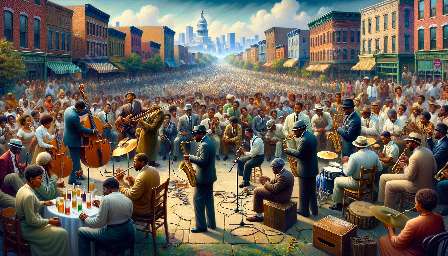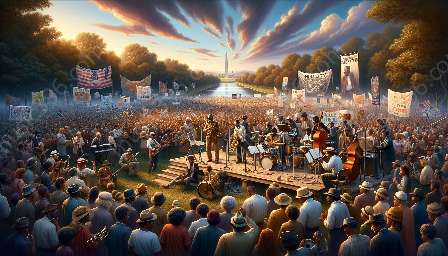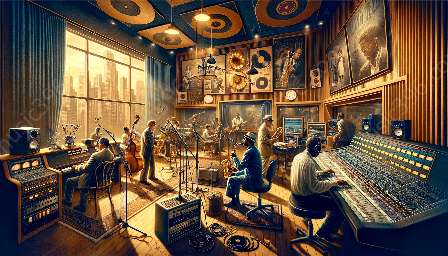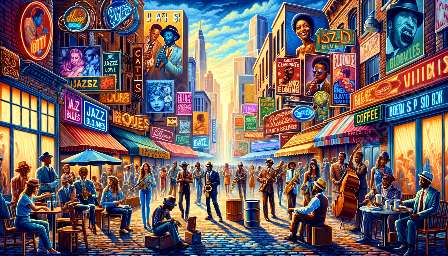Jazz has left an indelible mark on social and cultural movements throughout history, shaping and influencing various facets of society. Its evolution within jazz history and jazz & blues has been a pivotal force in driving societal change and inspiring cultural revolutions.
The Birth of Jazz
Jazz emerged at the turn of the 20th century in African-American communities in the Southern United States, particularly in New Orleans. It was a product of the amalgamation of African rhythms, European harmonies, and blues, resulting in a unique musical form characterized by improvisation, syncopation, and a rich tapestry of sound.
Jazz and the Harlem Renaissance
The flourishing of jazz coincided with the Harlem Renaissance, a cultural and artistic movement that celebrated African-American heritage and identity. Jazz became the soundtrack of this pivotal period, providing a platform for black artists to express their creativity and establish a new cultural identity.
Social and Racial Integration
Jazz played a crucial role in breaking down racial barriers, fostering unity, and promoting social integration. Its ability to transcend racial divides helped pave the way for social progress and understanding, challenging the norms of segregation and discrimination.
Jazz and Civil Rights
During the Civil Rights Movement, jazz became a symbol of resistance and empowerment. Artists such as Nina Simone, Billie Holiday, and John Coltrane used their music as a form of protest, addressing social injustices and advocating for equality and human rights. Jazz became a channel for spreading awareness and galvanizing support for the movement.
International Influence
The global impact of jazz cannot be understated. Through initiatives like the State Department's jazz diplomacy programs, jazz became a cultural ambassador, fostering cross-cultural understanding and diplomacy. Jazz exchanges between the United States and other nations helped bridge cultural divides and build relationships on a global scale.
Jazz and Counterculture Movements
During the 1960s, jazz found resonance within counterculture movements, providing a backdrop for social change and political activism. Avant-garde jazz musicians explored experimental sounds and avant-garde forms, aligning themselves with the anti-establishment ethos of the era.
Influence on Popular Culture
Jazz has permeated popular culture, influencing art, literature, fashion, and film. Its role in shaping the cultural landscape has been profound, with jazz motifs and themes resonating in various artistic expressions.
Modern-Day Impact
Jazz continues to inspire and influence contemporary social and cultural movements. Its fusion with other genres and its ability to adapt to new musical landscapes have ensured its relevance in shaping the evolving cultural fabric of society.

